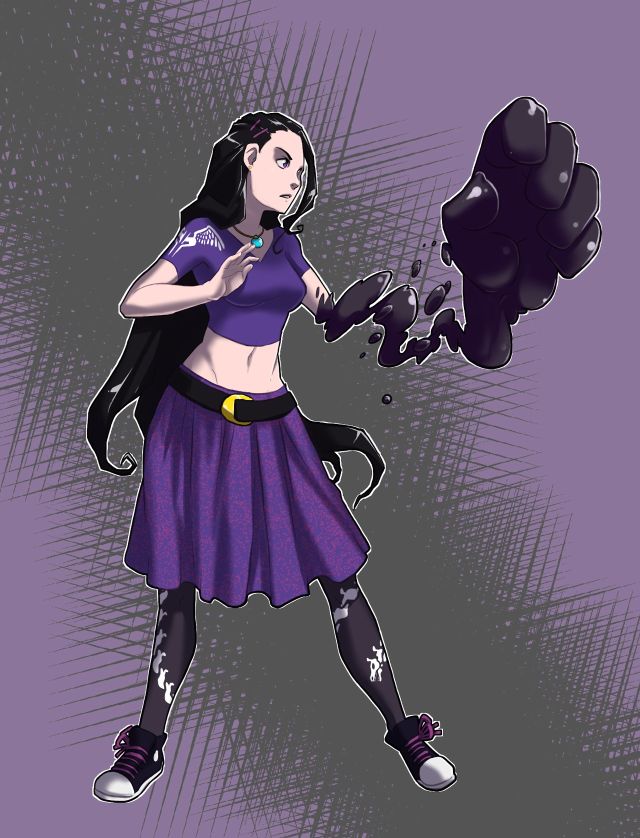×
Information in these threads may still be relevant but aren't critical for everyone to read if they are just logging in for the first time. Anything temporarily posted in news/announcements that is policy oriented will be added to the official policy pages before being placed here.
Some additional 'less critical' staff announcements may be posted here. Things like contact info and the like...
Some additional 'less critical' staff announcements may be posted here. Things like contact info and the like...
Question Art is about Surrender.
9 years 7 hours ago #1
by Warren
Posts:
272
Gender:
Male
Birthdate:
15 Oct 1963
Don't push the on-button if you don't know where the off-button is. -- Solomon Short
- Warren
-
 Topic Author
Topic Author
I'm posting an article that while she refers to an incident involving Cartoon Network it still applies to this universe as well.
AArt is about Surrender. Stop asking for it to be custom-tailored.
Below is my own paraphrase of the article as I feel it applies to us
Right off the bat the first sentence applies to us except replace "employed" with "interested." We've seen our own unfortunate incidents where fans crossed the line between expressing disappointment over art and deciding that the author needs to be punished. We've lost authors because fans pushed so hard that they inadvertently pushed a few buttons that brought up internal issues for the author and that forced them to quit writing Whateley stories. We've had our own issues with fans getting aggressive over character development.
Again it's not news that the Internet can get out of hand. but incidents likes these, suggest something about the changing nature of the relationship between fans and the universes they love.
What bothers me about our incidents is not so much the strong reactions to our stories. It's that fact that I was the original implementer of the universe forum that allowed the more direct access to the authors by the fans. Which opened the door for these things to happen.
Powerful art can be made in any genre, or in stories for any audience; that's why people find themselves deeply touched by Little House on the Prairie, Harry Potter, Dr. Who, Star Trek. or any number of TV shows, books or music. Art is supposed to have an impact. If you emerge from a work completely unmoved or unengaged, If you emerge from a work completely unmoved or unengaged, the artist has failed on some level. And when heated discussions/debates erupt over characters from our communities, I can understand that frustration can boil over.
But that these reactions can spill over into harassment is troubling both because I hate to see the public discourse of Whateley, which I like to thing I enabled, and because these incidents represent a fundamental breakdown in the relationship between fans and authors.
The idea that fans should be able to get their art made to order has always felt odd to me, because on a fundamental level, art is about trust. When we open a book, put on an album, start a new television show, or settle in as the lights go down in a movie theater, we’re preparing ourselves for what is fundamentally an act of submission. We’re giving ourselves over to a world of someone else’s making, a piece of music that emanated from someone else’s brain, a story where we have no ability to control the outcome, or, at minimum, someone else’s interpretation of a familiar narrative.
This is why art is genuinely transporting, rather than simply satisfying. If we had total control over what we were getting from art, we wouldn’t experience true surprise at a plot twist, the thrill of pieces of a story falling into a place we could not have anticipated, or the joy of sounds we couldn’t have juxtaposed ourselves, but that together are perfection. Our pleasures might be more precisely tailored, but they would be missing that particular experience of art giving us the thing we didn’t know we needed or wanted. The best art expands our sense of the world and what we can experience from it, rather than keeping us within neat, comfortable, pre-existing confines.
None of which is to say that this is a one-sided experience. There are plenty of ways for us to withdraw our consent to the artistic contract if we find that we don’t like what’s happening in a piece of work. Audiences can always put down a book, change the channel, click over to the next Pandora station, or walk out of a movie, concert or stage performance.
That said, having had enough of a particular artistic experience is not the same thing as changing the nature of artistic consumption. And newly-assertive fandoms are not the only way in which the relationship between audience, art and artist feels deeply unsettled right now.
Demands for specific plot elements are happening side-by-side with the rising expectation, fueled by the easy access to the authors we implemented. An old fashioned impulse has emerged. Like Renaissance artistic patrons, some of us want work to be tailored to our own personal desires. But unlike the people who bought portraits or church decorations, we're not reckoning with the financial and artistic cost of having our visions realized..
I've personally been reading a lot of stories that when I lay down to sleep after reading I find myself "dream writing" how I would wish the story I've just put down would go. While I might post a topic or a message to the author voicing my wish for a story to go the way I dreamed, I don't push. Also there is a level of insulation between the author of a story I'm reading out of a hard back book I bought or a Kindle book and myself. That's a level we removed.
I would like to thank Alyssa Rosenberg of the Washington Post for posting the article that moved me enough to share it here.
AArt is about Surrender. Stop asking for it to be custom-tailored.
Below is my own paraphrase of the article as I feel it applies to us
Warning: Spoiler!
[ Click to expand ]
[ Click to hide ]
Right off the bat the first sentence applies to us except replace "employed" with "interested." We've seen our own unfortunate incidents where fans crossed the line between expressing disappointment over art and deciding that the author needs to be punished. We've lost authors because fans pushed so hard that they inadvertently pushed a few buttons that brought up internal issues for the author and that forced them to quit writing Whateley stories. We've had our own issues with fans getting aggressive over character development.
Again it's not news that the Internet can get out of hand. but incidents likes these, suggest something about the changing nature of the relationship between fans and the universes they love.
What bothers me about our incidents is not so much the strong reactions to our stories. It's that fact that I was the original implementer of the universe forum that allowed the more direct access to the authors by the fans. Which opened the door for these things to happen.
Powerful art can be made in any genre, or in stories for any audience; that's why people find themselves deeply touched by Little House on the Prairie, Harry Potter, Dr. Who, Star Trek. or any number of TV shows, books or music. Art is supposed to have an impact. If you emerge from a work completely unmoved or unengaged, If you emerge from a work completely unmoved or unengaged, the artist has failed on some level. And when heated discussions/debates erupt over characters from our communities, I can understand that frustration can boil over.
But that these reactions can spill over into harassment is troubling both because I hate to see the public discourse of Whateley, which I like to thing I enabled, and because these incidents represent a fundamental breakdown in the relationship between fans and authors.
The idea that fans should be able to get their art made to order has always felt odd to me, because on a fundamental level, art is about trust. When we open a book, put on an album, start a new television show, or settle in as the lights go down in a movie theater, we’re preparing ourselves for what is fundamentally an act of submission. We’re giving ourselves over to a world of someone else’s making, a piece of music that emanated from someone else’s brain, a story where we have no ability to control the outcome, or, at minimum, someone else’s interpretation of a familiar narrative.
This is why art is genuinely transporting, rather than simply satisfying. If we had total control over what we were getting from art, we wouldn’t experience true surprise at a plot twist, the thrill of pieces of a story falling into a place we could not have anticipated, or the joy of sounds we couldn’t have juxtaposed ourselves, but that together are perfection. Our pleasures might be more precisely tailored, but they would be missing that particular experience of art giving us the thing we didn’t know we needed or wanted. The best art expands our sense of the world and what we can experience from it, rather than keeping us within neat, comfortable, pre-existing confines.
None of which is to say that this is a one-sided experience. There are plenty of ways for us to withdraw our consent to the artistic contract if we find that we don’t like what’s happening in a piece of work. Audiences can always put down a book, change the channel, click over to the next Pandora station, or walk out of a movie, concert or stage performance.
That said, having had enough of a particular artistic experience is not the same thing as changing the nature of artistic consumption. And newly-assertive fandoms are not the only way in which the relationship between audience, art and artist feels deeply unsettled right now.
Demands for specific plot elements are happening side-by-side with the rising expectation, fueled by the easy access to the authors we implemented. An old fashioned impulse has emerged. Like Renaissance artistic patrons, some of us want work to be tailored to our own personal desires. But unlike the people who bought portraits or church decorations, we're not reckoning with the financial and artistic cost of having our visions realized..
I've personally been reading a lot of stories that when I lay down to sleep after reading I find myself "dream writing" how I would wish the story I've just put down would go. While I might post a topic or a message to the author voicing my wish for a story to go the way I dreamed, I don't push. Also there is a level of insulation between the author of a story I'm reading out of a hard back book I bought or a Kindle book and myself. That's a level we removed.
I would like to thank Alyssa Rosenberg of the Washington Post for posting the article that moved me enough to share it here.
Don't push the on-button if you don't know where the off-button is. -- Solomon Short

